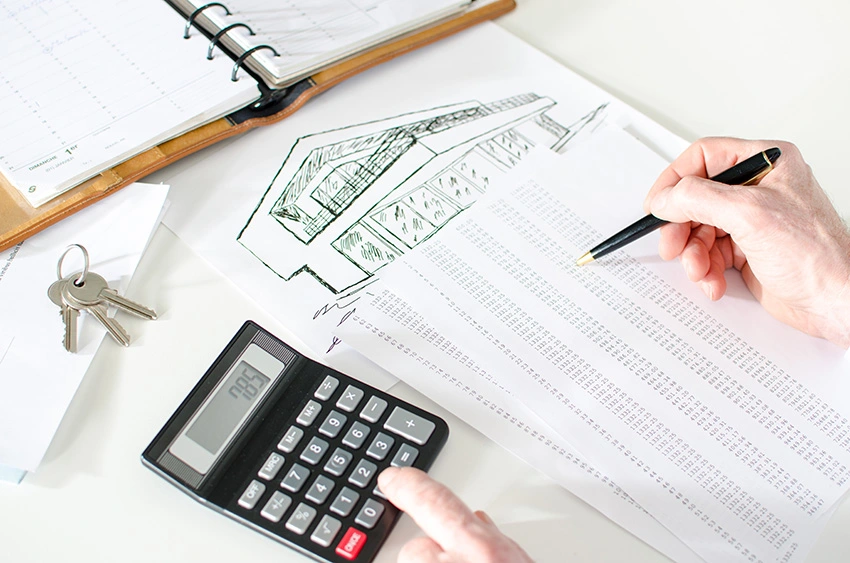Estimating taxes on new construction projects is a critical aspect of project planning. Accurate tax estimates ensure that you clearly understand the financial obligations associated with your construction venture. In this article, we will explore the various factors that can impact tax estimations, the methods and tools available for estimating taxes, and the steps you should follow to estimate taxes on new construction. Additionally, we will discuss the importance of precise tax estimates and provide tips for optimizing them.
Factors Affecting Tax Estimations
Property Location
One of the primary factors influencing tax estimations in construction is the property’s location. Different areas have varying tax rates and regulations, so it’s essential to consider the jurisdiction in which your construction project is located. Municipal, county and state tax rates can all play a role in your final tax liability.
Property Value
The assessed value of your property is another key factor. Higher-valued properties generally incur higher property taxes. Estimating the property’s value accurately is crucial for an effective tax estimate.
Local Tax Rates
Local tax rates, including property, sales, and other applicable taxes, can significantly impact your construction project’s overall tax burden. Be sure to research and stay updated on the current tax rates in your area.
Methods for Estimating Taxes
Manual Calculations
One way to estimate taxes is through manual calculations. This involves researching tax rates, assessing the property’s value, and performing calculations manually. Even though this method is time-consuming, it provides detailed and personalized estimates.
Online Tax Estimation Tools
Several online tools and calculators are designed to help you estimate taxes quickly and accurately. These tools often consider various tax rates and factors, making them a convenient option for estimating taxes on new construction.
Hiring a Professional
Hiring a Professional Estimator for complex construction projects or dealing with intricate tax laws may be beneficial. These experts can provide personalized guidance, ensuring you pay attention to all potential deductions and exemptions.
Importance of Accurate Tax Estimates
Accurate tax estimates are essential for several reasons. First and foremost, they help you budget effectively for your construction project. Unexpected tax liabilities can strain your finances and lead to delays or project cancellations. Furthermore, precise tax estimates enable you to make informed project financing and planning decisions.
Inaccurate tax estimations can lead to financial setbacks and legal complications. It’s crucial to avoid underestimating tax liabilities, as this can result in unexpected financial burdens. Moreover, overestimating taxes can tie up funds that could be better allocated to other aspects of your construction project.
Steps to Estimate Taxes on New Construction
Gather Property Information
Start by collecting all relevant information about the property. This includes its location, size, and any special features that may affect its assessed value.
Calculate Property Value
Determine the property’s assessed value, which is the basis for property taxes. You may need to consult local tax authorities or hire an appraiser for an accurate valuation.
Determine Tax Rates
Research and gather information on local tax rates, including property, sales, and any other applicable taxes.
Calculate Property Tax
Calculate the property tax liability using the assessed property value and tax rates. Be sure to consider any exemptions or deductions for which you may qualify.
Consider Additional Taxes
Remember to account for other taxes that may apply to your construction project, such as income or business taxes. Consult with a tax professional if necessary.
Tips for Optimizing Tax Estimates
Keep Detailed Records
Maintain thorough records of all financial transactions related to your construction project. Detailed records will help you substantiate your tax estimates and claims.
Stay Informed About Tax Law Changes
Tax laws can change frequently. Stay updated on any changes affecting your construction project to ensure accurate estimates.
Consult with Experts
When in doubt, consult with tax professionals or financial advisors. Your tax estimates can be optimized with their expertise if you need help navigating complex tax issues.
Conclusion
An accurate estimate of new construction taxes requires careful consideration of numerous factors and attention to detail. Accurate tax estimates are essential for effective project planning and financial management. By following the steps outlined in this article and considering the factors discussed, you can better estimate taxes and ensure the success of your construction project.
FAQs
Q: Can I rely solely on online tax estimation tools for accurate estimates?
While online tools are convenient, it’s advisable to cross-reference their results with other methods or consult with a tax professional for precision.
Q: How often should I update my tax estimates during a construction project?
It’s a good practice to periodically review and update your tax estimates, especially when significant project changes or tax laws change.
Q: Are there any tax incentives available for environmentally friendly construction practices?
Some jurisdictions offer tax incentives for sustainable and eco-friendly construction practices. Research local incentives in your area.
Q: Can property tax exemptions apply to new construction projects?
Property tax exemptions or reductions may be available for new construction, especially for certain types of properties or renovations. Check with local authorities for details.
Q: What penalties can I face if my tax estimates are significantly inaccurate?
Inaccurate tax estimates may result in penalties varying by jurisdiction and problem. For more information about potential consequences, talk to a tax professional.
Q: How can I estimate income taxes for contractors and subcontractors working on my construction project?
Estimating income taxes for contractors and subcontractors involves considering their earnings, deductions, and tax rates. Consulting with a tax professional is advisable for accurate estimates.
Q: Are there any tax-saving strategies specifically tailored to the construction industry?
Yes, tax-saving strategies apply to the construction industry, such as taking advantage of depreciation deductions and tax credits for energy-efficient construction.
Q: What should I do if I discover errors in my tax estimates after starting the construction project?
If errors are detected, addressing them promptly is crucial. Consult with a tax professional to determine the best action to rectify the situation.


